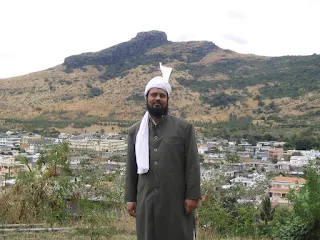In his Friday Sermon of April 27, 2012, Khalifatullah Hadhrat Munir Ahmad Azim Sahib
of Mauritius (atba) continued his discourse on the significance
of leading a full life in this world. Good deeds form half of the Faith. Believers
are to diligently pursue their noble objectives on every single day of their
lives. One must rank one’s priorities and set objectives in terms
of importance and try to accomplish each of these tasks in the required time.
The main duty or sacred duty (Farz deed) must be fulfilled
before performing a supererogatory one, and this is equally valid for other
cases. ‘Exploit (your) time fairly and effectively’ and ‘not be among the thoughtless and forgetful’,
exhorts the Messenger of Allah
of our times.
Read the Extracts from the Sermon:
“...There is no favour to any particular person where time is concerned. This is because the latter is split equally between men. But some have more merit in how to manage, operate and profit from it. Allah (swt), who evaluated time, and shared it among His servants, distinguished some moments that are better than others.
 In terms of ritual actions, Allah (swt) has spared some time for the seasons
where expected rewards are increased, as the month of Ramadan and the first ten
days of Dhul-Hijjah. Other moments are more favourable to the fulfillment of
prayers, as the last third of every night, every Friday afternoon, the breaking
of the fast for the faster, and the sacred night (Laila-tul-Qadr) in the
month of Ramadan!
In terms of ritual actions, Allah (swt) has spared some time for the seasons
where expected rewards are increased, as the month of Ramadan and the first ten
days of Dhul-Hijjah. Other moments are more favourable to the fulfillment of
prayers, as the last third of every night, every Friday afternoon, the breaking
of the fast for the faster, and the sacred night (Laila-tul-Qadr) in the
month of Ramadan!Every day you have before you a moment in the morning, a moment in the evening and another at dawn, where you can raise your pure mind to the heavens to win both favours of this world and the hereafter. Before you, there are the seasons of the submission, the days of meditation and nights of sacrifices, to which you refer to the Holy Book (the Quran) and the teaching of the Holy Prophet (peace be upon him). Try then to be among those who remember and call on their Lord, and not be among the thoughtless and forgetful. Be those who act, not of those who laze. Enjoy your time, time is like the sword, and neglect procrastination because there is nothing more harmful.








